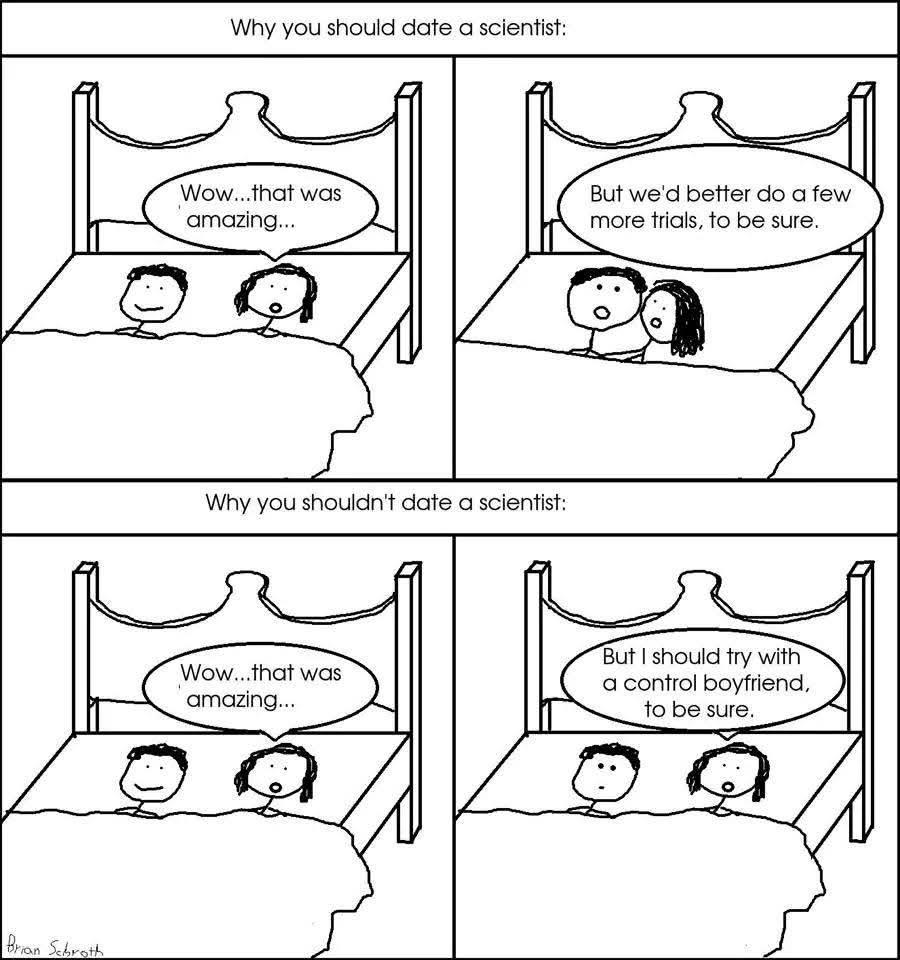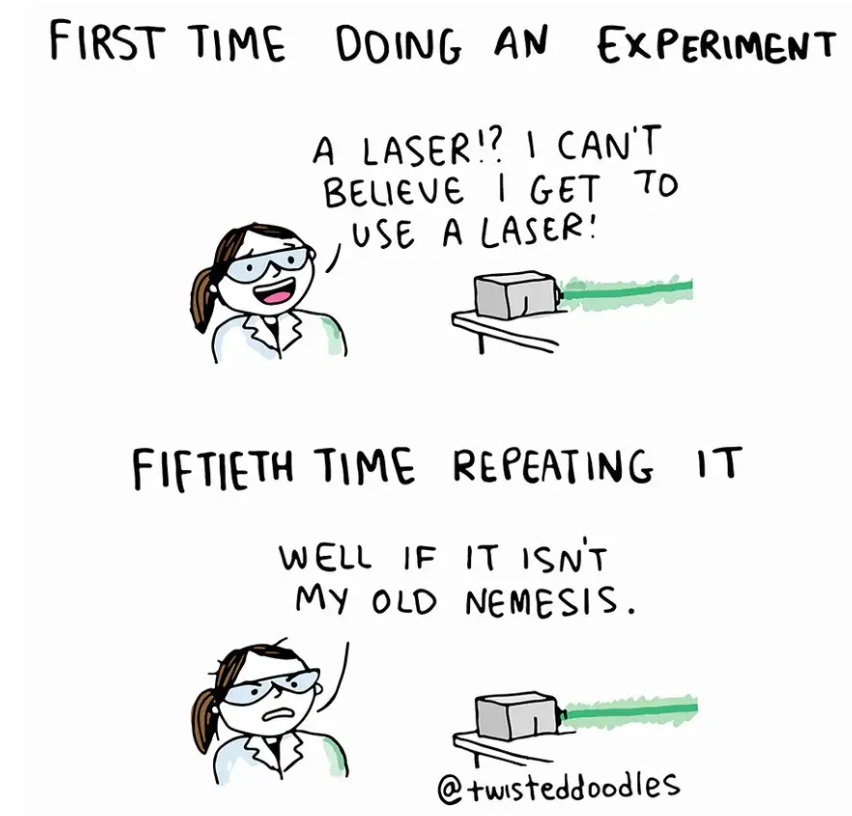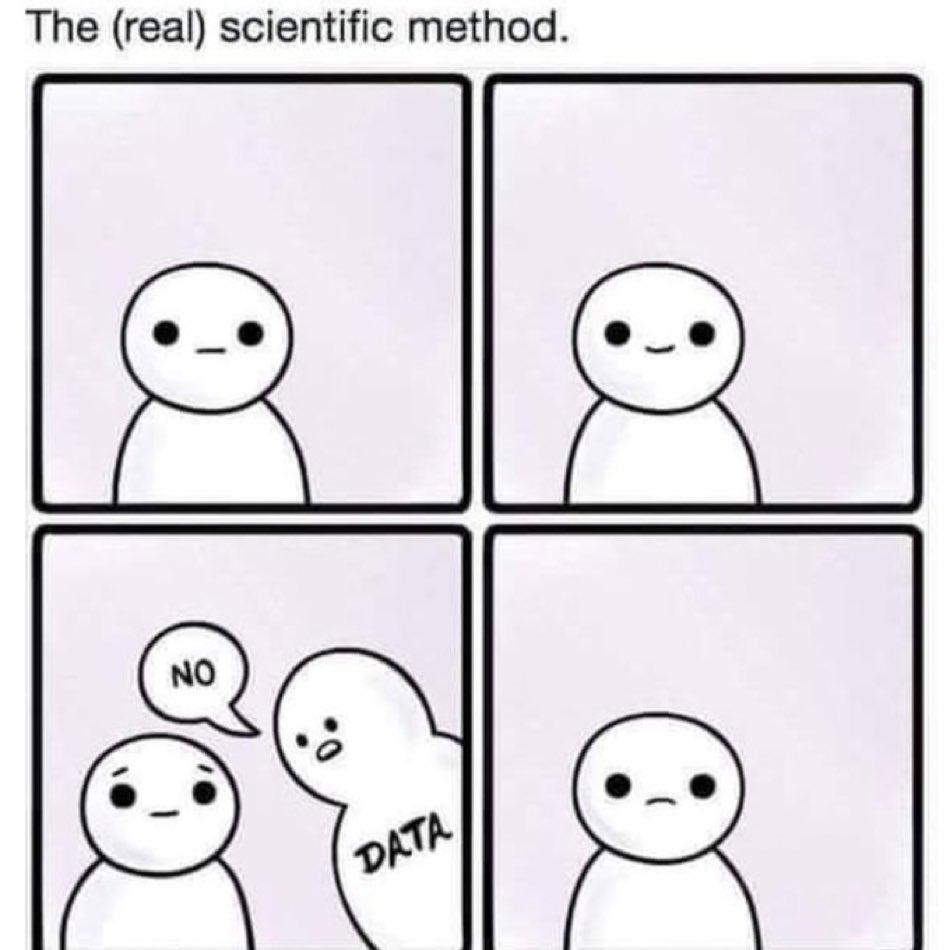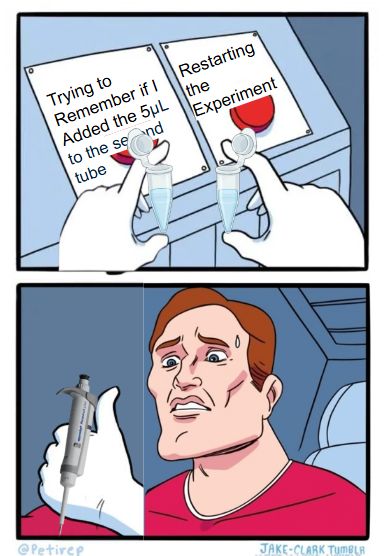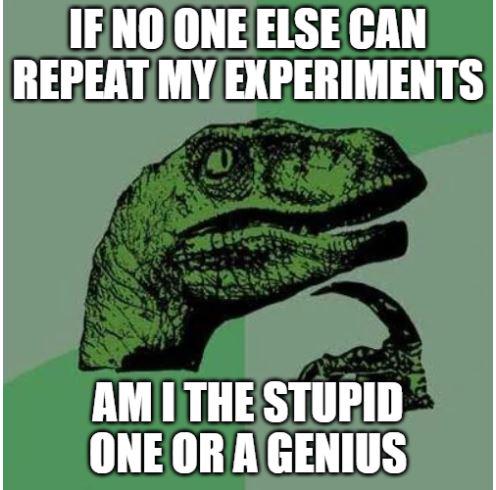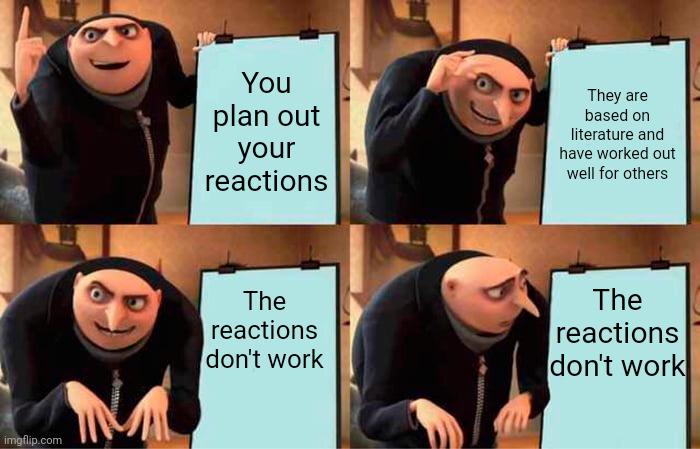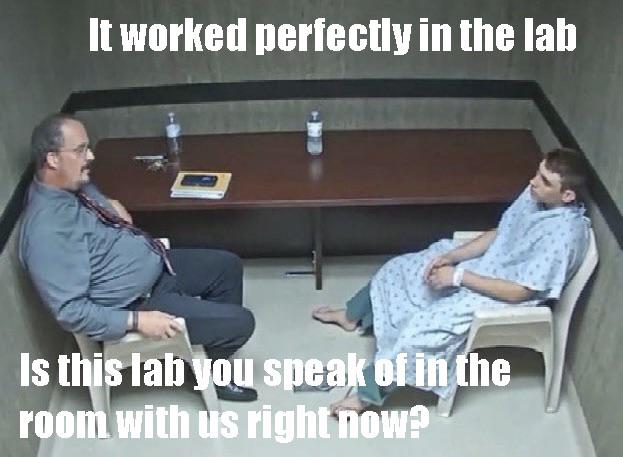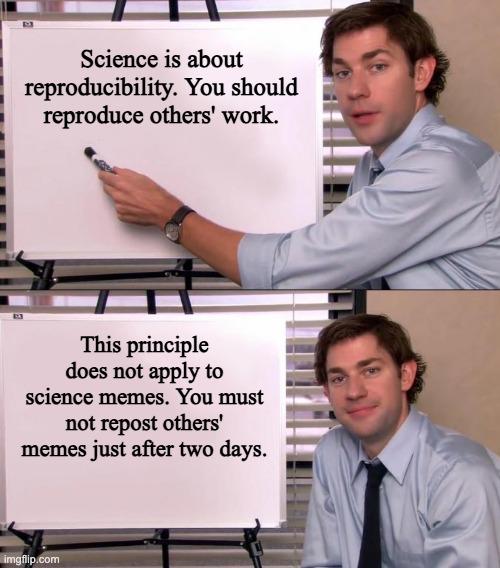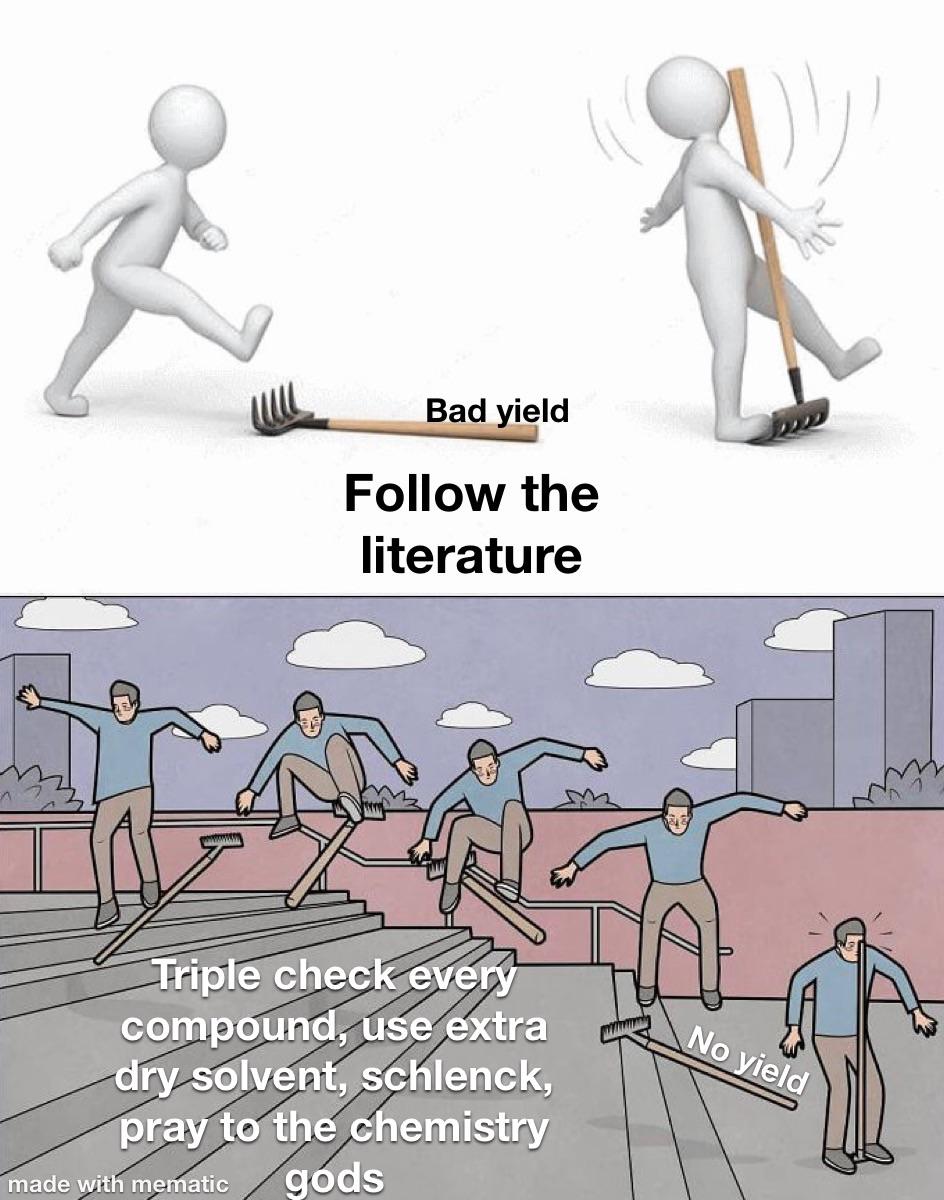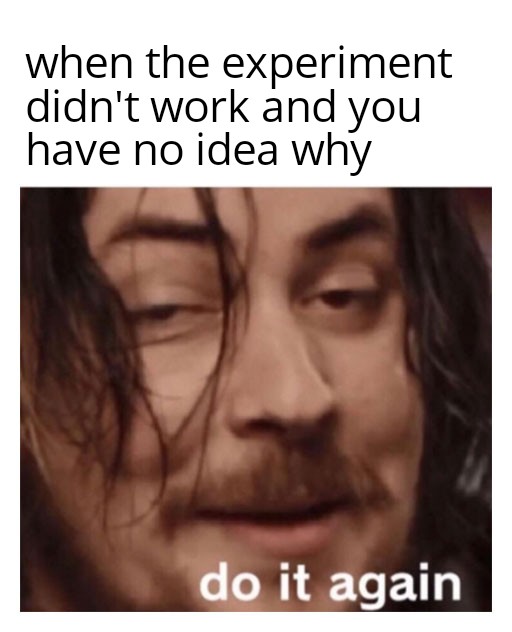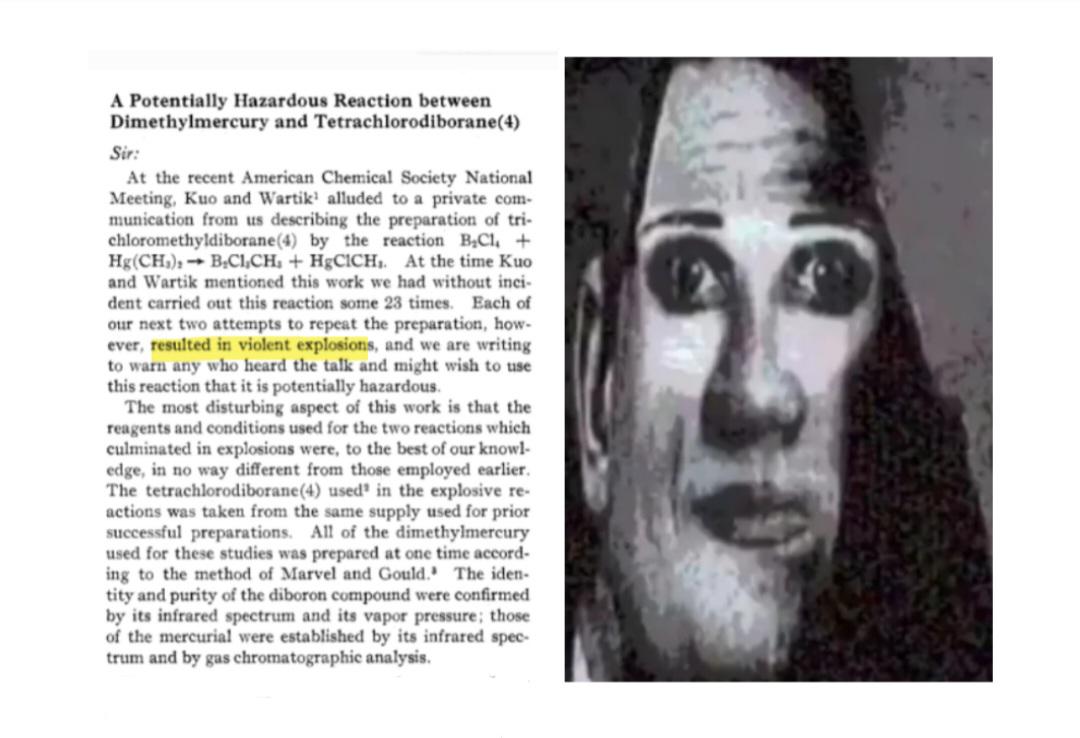What they teach you in school: hypothesis → experiment → analyze data → conclusion. What actually happens: You stare blankly at your experiment for days, get one tiny smile of hope when data appears, only for it to immediately scream "NO" and vanish into the void. Then back to the blank staring. That fleeting moment when your experiment produces a single promising result before returning to an endless desert of null findings is the scientific equivalent of seeing a shooting star. Beautiful, brief, and probably won't happen again until the heat death of the universe.


 Academia
Academia
 Ai
Ai
 Astronomy
Astronomy
 Biology
Biology
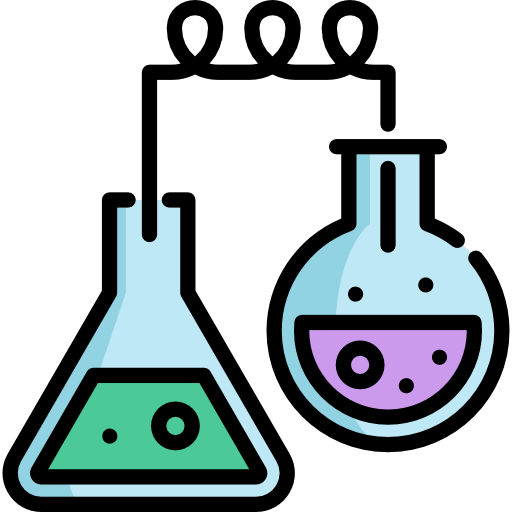 Chemistry
Chemistry
 Climate
Climate
 Conspiracy
Conspiracy
 Earth-science
Earth-science
 Engineering
Engineering
 Evolution
Evolution
 Geology
Geology

